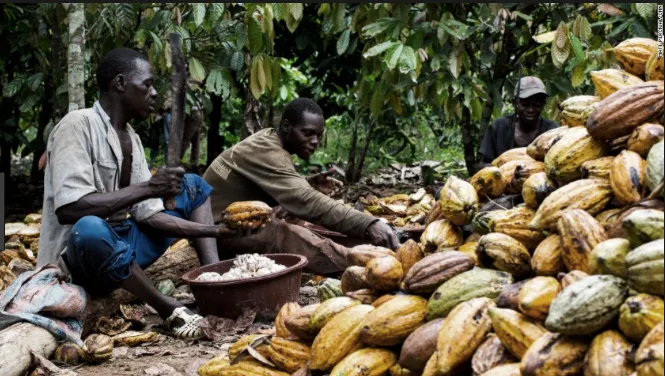Producing Chocolate in Ivory Coast

For the world’s two biggest cocoa bean producers, there seem to be very few chocolate producers except a couple of the global companies. Does anyone have a clear reason why this is? Thanks.
I like the valuable info in your articles. I’ll bookmark your blog and check again here regularly. I” ll learn plenty of new stuff right here! Best of luck for the next!
I have been making Chocolate in Ghana for 6 years. My company is DecoKraft (www.decokraftgh.com). I started as a chocolatier and then to chocolate making ( from Cocoa mass). Over the years, I have trained about 60 people in chocolate making. The major problem is that, materials for chocolate making are not easy to find in Ghana. The chocolate industry too is a quiet expensive to start. So for young people, especially the women, it easier to start a cake business than a chocolate business. Another challenge is that, there are strict rules concerning the purchase of cocoa beans. Buying cocoa beans directly from a farmer is illegal in Ghana. If one wants to buy from the certified authorities, it has to be in huge quantities. However, the artisanal chocolate industry is growing. I know of more than 10 small scale chocolate business in Ghana ( a lot more have the knowledge but do not practice). There are about 5 in Ivory Coast, 1 in Togo, Uganga, Gambia and about 5 in Nigeria.
I think we can explore collaboration with you to see where it will go.
We have our own organic cocoa farm and plans are far advanced in making our own bar chocolate.I must admit however that the production cost is higher due judging from our pilot project due to its small scale nature but it is 100% possible
the govt cannot force us to sell
our beans if we are ready to add
value to it.What we however need is partners who will be willing to sell in the international markets for us and supporting us to be in business.So we are open to such prospects.
The dynamic is a combination of most of the factors listed above, plus some others.
The case can be made that it’s cheaper to ship nib/liquor than it is to ship beans. Finished chocolate is a different issue because you need to have a dependable electrical supply – for machines as well as refrigeration. If you’re making in the countryside you have to maintain the cold chain to the port which can be problematic given the condition of roads, and the reliability of electricity in rural areas. Finished chocolate needs to be shipped in refrigerated or frozen containers. It might be possible to LCL (less than container load, aka consolidate) but that’s also relatively expensive compared with shipping nib or liquor in a dry container.
There is also the control that the local cocoa boards exert over pricing. A grower who wants to be a chocolate maker might be forced to purchase the beans at the market price, not the farm gate price (i.e., sell the beans at the farm gate price to the cocoa bard and then buy them back from the cocoa board at market price to make chocolate), thereby negating any price advantage.
It’s pretty easy to make chocolate, it’s a lot (a LOT) harder to make good chocolate consistently, especially in-country for export markets. There is the cost of equipment and facilities. Then there is the cost of training people who have zero knowledge of what their eventual customers are looking for.
It can be done – it is being done in Peru and Ecuador, for example – but it requires patience and capital as well as a broad range of skills – and international experienec – to make happen.
Big Chocolate is not going to fuss if a chocolate maker starts processing 100MT of beans in-country in Ghana or Ivory Coast because the amounts involved are so small. But, it will require government policies that encourage (or at least do not discourage) production in the country of origin.